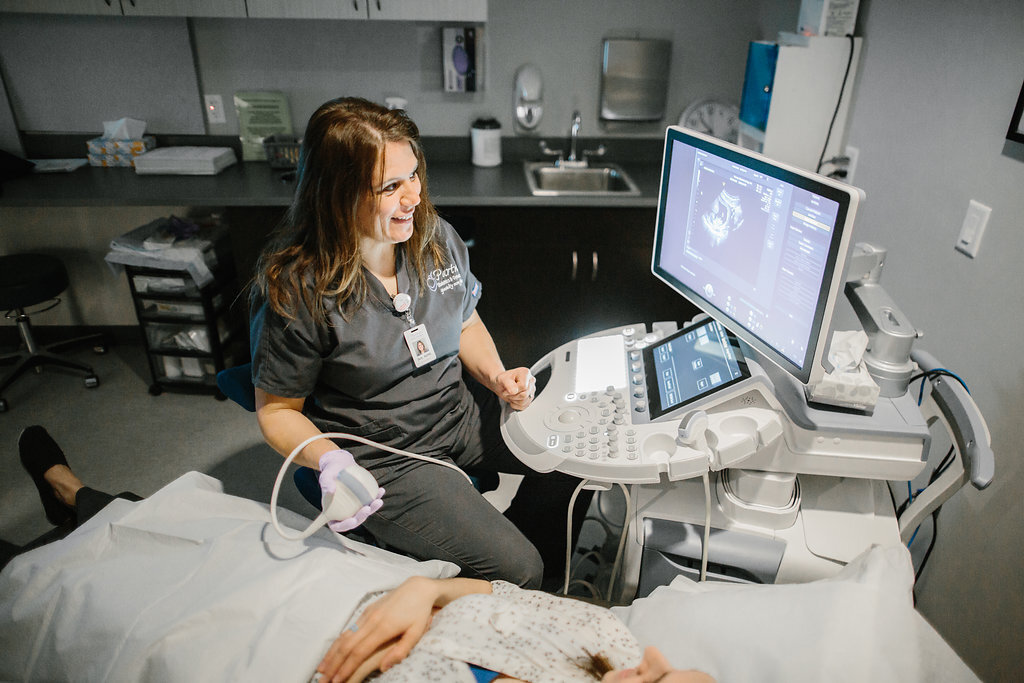There are numerous types of ovarian cysts. Many times they are asymptomatic and resolve on their own, so many women may not even realize that one developed in the first place.
However, some ovarian cysts can present with symptoms and cause additional problems if they do not resolve on their own. In today’s blog, we take a closer look at the different types of ovarian cysts that can develop and talk about some treatment techniques for potentially problematic cysts.
Types Of Ovarian Cysts
The most common type of ovarian cyst is classified as a functional cyst. This means that the cyst developed not because of a disease, but rather ovulation. The two most common types of functional cysts are a follicular cyst, which forms when the follicle fills with fluid instead of releasing an egg, and a corpus luteum cyst, which forms when fluid collects in the hormone-producing group of cells called the corpus luteum, following an egg release. Both of these cysts can actually be a sign that your ovaries are functioning properly, and oftentimes they will resolve on their own within 60 days without direct treatment.
However, not all cysts form in response to your menstrual cycle, and while that doesn’t mean they are caused by a disease, your women’s healthcare provider may want to monitor them a little more closely. Some of these types of cysts include:
-
Cystadenomas – This type of cyst forms on the surface of your ovary, and fluid inside the sac may be thin or thick.
-
Dermoid Cysts – Dermoid cysts are composed of cells that make up all different types of tissue in the body, and they form when fully developed tissue collects in an unexpected location, like your ovaries.
-
Endometriomas – Endometriomas are cysts that are filled with endometrial tissue, which is the same tissue that you shed each month during your menstrual cycle.
-
Ovarian Cancer – Ovarian cysts can also be the result of solid formations of cancer cells within the ovary. Less than one percent of ovarian cysts are cancerous.
As we mentioned earlier, ovarian cysts typically don’t cause any symptoms, but when they do, the most common symptoms include:
-
Abdominal discomfort
-
Bloating
-
Pelvic pain
-
Painful intercourse
-
Nausea
-
Vomiting
-
Tenderness in the abdomen or breast
Diagnosing And Treating Ovarian Cysts
In most instances, ovarian cysts are found during a routine pelvic exam. If swelling is detected in one of your ovaries, an ultrasound can be used to confirm the presence of the cyst. Ovarian cysts may also be spotted on a CT scan or MRI. Because most ovarian cysts end up resolving on their own, many doctors will not recommend any direct treatment other than watchful waiting. They may recommend an ultrasound in a few weeks or months to see if the cyst has resolved or if active treatment is recommended. In some cases, birth control can be prescribed to stop ovulation and prevent future cysts if the patient is comfortable with this method.
If future ultrasounds find that the cyst is getting bigger, a surgical procedure may be recommended to remove it. The specific procedure will depend on the patient and the size and location of the cyst, but two of the most common operations are a laparoscopy and a laparotomy:
-
Laparoscopy – A thin flexible tube will be inserted into a small incision on your abdomen. This tube has a camera attached to it that allows the doctor to visualize the area. They can navigate to the area and carefully excise the cyst through a series of tiny incisions.
-
Laparotomy – This is an open technique that has the same end goal as a laparoscopy, but a single, larger incision is made in order to give the surgeon a better view of the cyst.
Again, most cysts resolve without the need for surgery, and when an operation is recommended, it can most commonly be performed using minimally invasive techniques. Surgery tends to have very high success rates, and we’d be more than happy to walk you through the specifics of this procedure if it becomes necessary for your care.
For more information about ovarian cysts, or to talk to a provider about discomfort you’re experiencing in your abdominal or pelvic area, reach out to the team at MetroPartners OBGYN today at (651) 770-3320.

